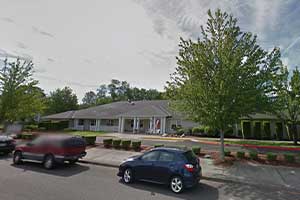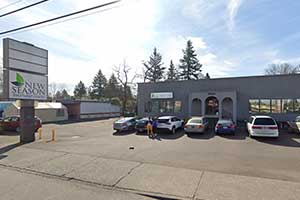Skip To Rehab Listing
With addiction treatment readily available, individuals struggling with addiction can get assistance within their local area.
Addiction Therapy Service Settings and Recovery Approaches In Happy Valley, Oregon
The settings of rehabilitation centers in Happy Valley may include the following: short term drug rehab centers, outpatient substance abuse counseling, inpatient rehab facilities, long term drug abuse treatment, inpatient detox facilities.
People seeking treatment can find conveniently located centers close by with a range of rehab approaches designed for successful recovery. These methods, which contain both well-established and newer approaches, include the following: dual diagnosis drug rehab, trauma therapy, relapse prevention, anger management, group therapy, dialectical behavior therapy.
Programs Addressing Special Requirements for Substance Abuse Treatment
Alcohol and drug abuse can differ based upon factors, like the kind of substance causing the addiction. Many rehabilitation centers in the Happy Valley region deliver facilities meant to customize treatment to a patient's unique needs. These programs are comprised of the following: programs for the hearing impaired, residential beds for client's children, clients referred from the court/judicial system, co-occurring mental and substance abuse disorders, legal advocacy, persons with post-traumatic stress disorder.
Clients who are not sure what their requirements are can contact these centers to obtain patient resources that can guide them toward the exact program.
Paying For Treatment - Payment & Financing Flexibility
Individuals struggling with drug and alcohol dependency come from different economic conditions, but a range of funding alternatives makes recovery economically accessible for anybody. Funding opportunities include the following: cash or self-payment, private medical insurance, payment assistance, medicare, medicaid, state education funds, access to recovery (atr) voucher.
People searching for treatment can reach out to a rehab facility to learn more about what financing options are available to them.
Happy Valley, OR.'s substance abuse facilities, resources, and payment alternatives provide people who are struggling with drug and alcohol use an opportunity to begin a sustainable sobriety plan.
Commonly Asked Questions about Addiction and Treatment
How long does it take for the treatment of drug addiction?
"The duration of treatment for drug addiction can vary significantly depending on several factors, including the individual's unique needs, the severity and type of addiction, and the chosen treatment approach. There is no universally prescribed timeline for addiction treatment, as each person's journey to recovery is different. However, some general timeframes can be considered when discussing drug addiction treatment:
Detoxification: The initial detoxification process, during which the body clears itself of drugs and toxins, can range from a few days to several weeks, depending on the substance involved and the individual's physiological response.
Inpatient or residential treatment: Inpatient or residential treatment programs, which provide intensive, structured care in a controlled environment, typically last between 28 days and 90 days. However, some individuals may require extended stays of six months or longer, depending on their progress and specific needs.
Outpatient treatment: Outpatient treatment programs, which offer therapy and support while allowing individuals to continue living at home, can vary in duration and intensity. Some programs may last for several weeks or months, while others may continue for a year or more, with sessions becoming less frequent over time as the individual progresses in their recovery.
Aftercare and ongoing support: Recovery from addiction is a lifelong process, and ongoing aftercare and support are crucial for maintaining long-term sobriety. Aftercare may include continuing therapy, attending support group meetings, or participating in sober living communities. The duration of aftercare and ongoing support can vary based on individual needs and may continue indefinitely.
Research suggests that longer durations of treatment are generally more effective in promoting lasting recovery. The National Institute on Drug Abuse (NIDA) recommends a minimum of 90 days of treatment for most individuals, as shorter durations have been associated with higher relapse rates. However, it is essential to recognize that each person's path to recovery is unique, and the most effective treatment plans are tailored to their specific needs, goals, and circumstances."
How to talk to a family member about their addiction to drugs?
When addressing a family member's addiction to drugs, it is essential to approach the conversation with empathy, understanding, and a non-judgmental attitude. Here are some steps to consider when discussing this sensitive topic:
- Educate yourself: Before initiating the conversation, educate yourself about addiction, its causes, and available treatment options. This knowledge will help you better understand the situation and provide accurate information to your family member.
- Choose the right time and place: Find a suitable environment where both of you can have a private and uninterrupted conversation. Pick a time when your family member is sober and relatively calm, as it increases the chances of having a productive discussion.
- Express concern and love: Begin the conversation by expressing your genuine concern and love for your family member. Use "I" statements to convey your feelings without sounding accusatory. For example, say, "I've noticed some changes in your behavior, and I'm really worried about you."
- Use non-confrontational language: Avoid blaming or criticizing your family member, as it can lead to defensiveness and hinder the conversation. Instead, use non-confrontational language to express your observations and concerns. Focus on their well-being and the impact their addiction may be having on their life and relationships.
- Active listening: Encourage your family member to share their feelings, thoughts, and experiences regarding their addiction. Practice active listening by giving them your undivided attention, maintaining eye contact, and offering supportive responses. Show empathy and try to understand their perspective without judgment.
- Offer help and support: Let your family member know that you are there to support them through their journey to recovery. Provide information about available resources, such as local support groups, counseling services, or addiction treatment centers. Offer to accompany them to appointments or assist in finding suitable treatment options.
- Establish boundaries: While offering support, it is crucial to establish clear boundaries to protect yourself and other family members from enabling or codependent behaviors. Make it clear that you will not tolerate or participate in any activities that enable their addiction.
- Encourage professional help: Suggest the importance of seeking professional help from addiction specialists or therapists. Assure your family member that seeking help is a sign of strength, and it can greatly improve their chances of recovery.
- Avoid enabling behaviors: It's important not to enable your family member's addiction by providing financial assistance or covering up the consequences of their actions. Enabling can perpetuate the cycle of addiction and hinder their motivation to seek help.
- Self-care: Supporting a family member with addiction can be emotionally challenging. Take care of your own well-being by seeking support from friends, support groups, or therapists. Remember that you cannot control or fix their addiction, but you can offer love, support, and encouragement.
How does drug addiction affect the family unit?
Drug addiction can have far-reaching consequences not only for the individual struggling with substance use, but also for their family unit. Family members may experience various emotional, social, and financial challenges as a result of a loved one's addiction. Some of the ways drug addiction can impact the family unit include:
- Emotional strain: Family members may experience a range of emotions, such as fear, anger, frustration, guilt, and sadness, as they grapple with their loved one's addiction. These emotions can be overwhelming and may lead to mental health issues, such as anxiety or depression, among family members.
- Family dynamics: Drug addiction can alter family dynamics, leading to increased conflict, mistrust, and communication breakdowns. This may result in a dysfunctional family environment and strained relationships among family members.
- Role changes: Family members may be forced to take on new roles to compensate for the challenges brought on by the addiction. For example, a spouse or older child may assume additional responsibilities for managing the household, providing financial support, or caring for younger siblings.
- Neglect of responsibilities: The individual struggling with addiction may neglect their responsibilities as a parent, spouse, or sibling, leaving other family members to bear the burden of these responsibilities.
- Financial strain: The costs associated with obtaining drugs and potential job loss due to addiction can place a significant financial burden on the family. This may result in debt, inability to meet basic needs, or even homelessness.
- Legal issues: Family members may face legal problems as a result of their loved one's drug-related activities, such as theft or drug possession. Legal issues can create additional financial strain and emotional stress for the family.
- Safety concerns: Drug addiction can expose family members to unsafe situations, such as violence, drug-related criminal activities, or the presence of dangerous substances within the home.
- Impact on children: Children in families affected by drug addiction may experience emotional, behavioral, and developmental challenges. They may be at greater risk for academic difficulties, mental health disorders, and substance abuse themselves later in life.
- Social isolation: Family members may become socially isolated due to stigma, shame, or fear associated with their loved one's addiction. This can lead to a loss of support networks and further emotional strain.













